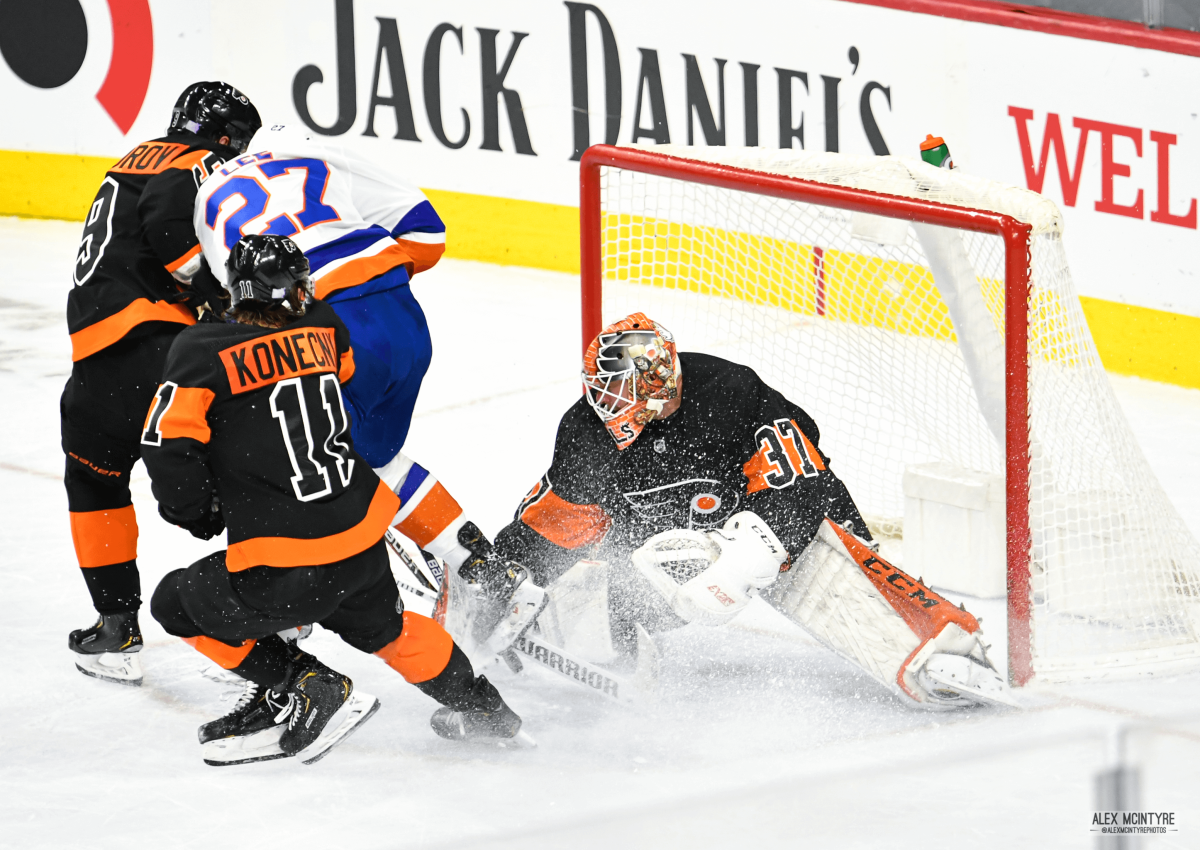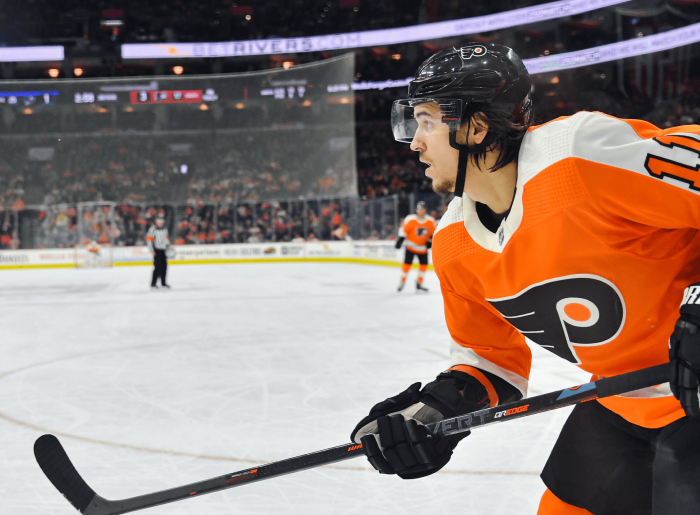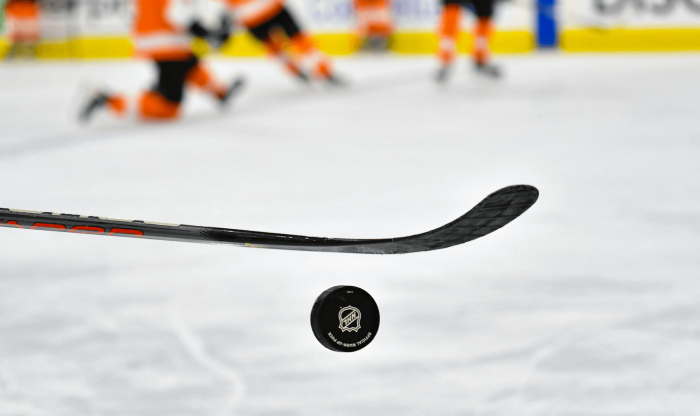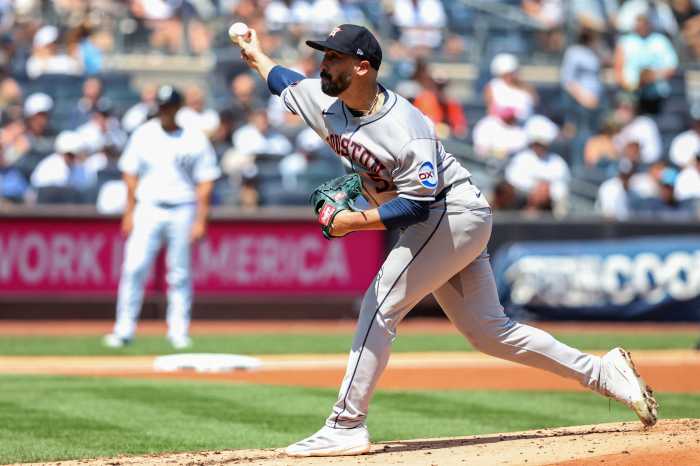Coming off a six-game series victory against the Montreal Canadiens, the Philadelphia Flyers face their gravest challenge. Of all the teams making up the Eastern Conference in the 2020 Stanley Cup playoffs, the New York Islanders are the most dangerous. Through the 2019-2020 regular season, the Flyers are without a win against the Islanders. They are the only team Philadelphia has not been able to defeat. The Tampa Bay Lightning were also undefeated against the Flyers in the regular season but lost to Philadelphia in the round-robin.
Jakub Voracek, the Philadelphia Flyers leading scorer this postseason, would be third in scoring on the New York Islanders. Only three of the Flyers top-five scorers (Kevin Hayes, Scott Laughton, and Sean Couturier) have played nine games, which is the standard through all of the Islanders top-five forwards. On paper, New York’s forwards have been better this postseason. After winning their series, 4-1, the Islanders had a plus-9 goal differential. Philadelphia won their series, 4-2, with a minus-two goal differential.
The Philadelphia Flyers need to play defensive series. That is their key to solving the New York Islanders. If the Flyers decide to play a lax style of defense and rely on their forwards, they will trend in a losing direction. What worked against the Montreal Canadiens likely will not against the Islanders. Alain Vigneault may have to shuffle his approach to solve this New York mystery.
Original First Line Forwards
Shutting down the opposition’s first line is very important to the success of the Philadelphia Flyers in the postseason. That is what the original lineup of the Flyers first line (Claude Giroux, Sean Couturier, and Jakub Voracek) do best. The forecheck and the defense that line provides will stunt the productivity of the New York Islanders’ first line. It is a requirement that forechecking is the top priority, especially to contain Matthew Barzal.
Urgent Second Line Forwards
Even more important than limiting the first line of the New York Islanders is shadowing their second line. Their second line (Anthony Beauvillier, Brock Nelson, and Josh Bailey) accounts for 26 points scored in five games against the Washington Capitals. The Philadelphia Flyers ought to consider going back to their original second line (Scott Laughton, Kevin Hayes, and Travis Konecny) to begin this series. Joel Farabee would trade back to the third line in place of Laughton. While Farabee is top-five in scoring for the Flyers this postseason, Laughton is better defensively and has showcased his ability to score in the round-robin.
Bottom Six Speed
Speaking of Joel Farabee, he still plays a vital role against the New York Islanders. The name of the game for the Islanders forwards is speed. Farabee, on the third line with Michael Raffl on the opposite wing, would work. On the fourth line, Nate Thompson’s time is up. If Nicolas Aube-Kubel is healthy, replace Thompson with James van Riemsdyk, then keep Tyler Pitlick on the right-wing.
Defensive Pairings
Shuffling the defensive lines gets dicey. The worst thing that the Philadelphia Flyers could do is move Philippe Myers and Travis Sanheim around the lineup. Shayne Gostisbehere thrived with Ivan Provorov on the first line, but it is tough to imagine Matt Niskanen demoted to the third line with Robert Hagg. If all of this played out, it would not be the worst idea to experiment with in game one of this series. After the Eastern Conference Quarterfinals, the odd man out could be Justin Braun if Gostisbehere won Alain Vigneault over.
Special Teams
During the Eastern Conference Quarterfinal series against the Montreal Canadiens, the Canadiens averaged five penalties a game. The Philadelphia Flyers only scored four powerplay goals. The Flyers must find a way to convert more than 10.3% of powerplay opportunities. Their counterparts, the New York Islanders, are only scoring on 15.8% of powerplay opportunities.
On the penalty kill, the Philadelphia Flyers maintain an advantage. The Flyers eliminate 80.7% of the opposing teams’ powerplay chances. The New York Islanders wipe away 75% of their opponents’ powerplays. Overall, the special teams match evenly.






























